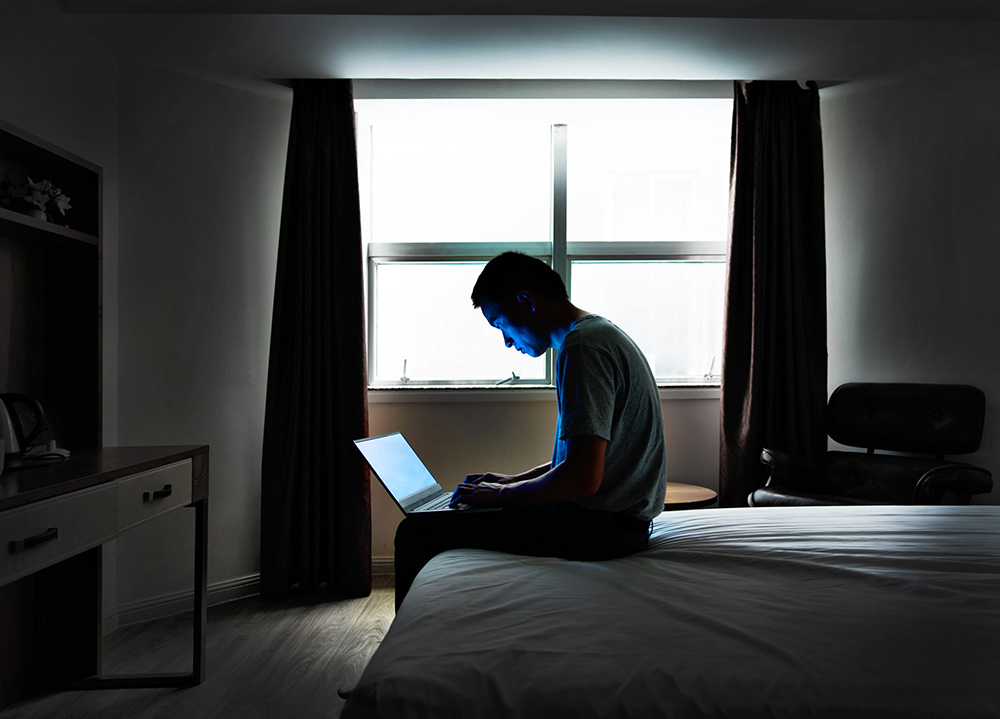
眾所周知,最近幾年,商務旅行被顛覆,由于疫情的影響商務旅行幾乎達到停滯的地步,而隨著公司將虛擬會議作為第一選擇,商務旅行的頻率大幅減少。現在有跡象表明,商務旅行正在積極復蘇,預計2023年和2024年都將持續增長。
雖然這對于商務旅行管理公司和重視面對面交流的公司確實是好消息,但一項最新研究披露,大多數商務旅行者對于恢復出差并不熱情。為什么?許多人被要求“恢復常態”,但關于如何在后疫情時代出差,他們卻幾乎得不到任何指導。
對于公司而言,如果不考慮這種全新的環境,它們將會受到嚴重影響。Opinium應旅行風險管理組織世界旅行保護(World Travel Protection)委托開展的一項調查顯示,只有三分之一商務旅行者(33%)表示對恢復出差感到開心。而對出差不開心的受訪者表示,與疫情之前相比,他們更擔心在出差過程中的身心健康問題,而且他們經常感覺有壓力、疲勞、想家和焦慮。
對于旅行風險管理行業的從業者而言,這種情況的出現并不意外。我們清楚,一些可怕的而且通常會令人產生壓力的因素相互疊加,永久改變了全球旅游業的格局,對世界各地的商務旅行者產生了影響。
新出現的威脅包括地緣政治沖突、對某些群體和種族的歧視加劇、人工智能和其他技術變革,以及氣候變化導致颶風、地震和野火等自然災害增多。
除此之外,旅游業依舊面臨人手不足的問題,這經常導致航班延誤、旅行中斷等,加劇了一些員工對出差的反感。
女性尤其會對出差感到焦慮。有70%的商務旅行者認為女性出差的安全性低于男性;約四分之一商務旅行者,包括男性和女性,均表示他們不愿意前往女性權益不受保護的國家出差。
隨著美國和全世界恐同言論和仇恨言論增多,相關立法日益嚴格,LGBTQIA+員工變得更加焦慮。危險和公然騷擾顯然是他們感到壓力和焦慮的來源,而如果他們感覺自己因為擔心不良影響而被迫隱瞞自己的性取向或性別表達,這種負面情緒可能會加劇。
盡管員工出差的風險和焦慮增加,但很少有公司能在員工出差之前,為員工提供關鍵教育和信息,使他們能夠做好充分準備,并為他們提供保護。只有不到30%的員工表示在出差時得到了實用建議,例如緊急情況下的聯系人或遭遇事故時的處理方式等。只有剛過半數的商務旅行者認為,在海外出差時,如果遭遇緊急情況或個人危機,其所在的公司能夠提供幫助。
如果公司沒有向員工充分傳達其可以提供的支持,商務旅行者可能會感到不安,而且通常只能自己動手處理問題。(調查發現,約一半商務旅行者會保證家庭成員或同事能夠始終知曉他們身在何處,約四分之一商務旅行者會在天黑后避免獨自外出。有人甚至承認會在酒店房間門前放置障礙物,以避免不速之客闖入。)
所有雇主都有義務保護員工,避免他們遭受超出其身體健康和安全之外的可合理預測的健康和安全風險,包括心理健康風險。否則雇主可能要在法律和公司信譽方面承擔嚴重后果。
毫無疑問,自疫情爆發以來,出差者的社交隔離和心理健康惡化等問題變得更加突出,而近幾年出差所帶來的壓力更是雪上加霜。
過去幾年,人們可以在舒適便利的家中遠程辦公,因此出現這種現象并不意外。目前,商務旅行變得前所未有的不穩定、復雜或不可預測,而應對風險變得更加困難。
保證出差員工的身心健康是每一位雇主的責任。雇主可以主動采取保證出差安全的積極措施,以減輕員工的焦慮和壓力,支持員工出差期間的心理健康需求,并保證員工在后疫情時期可以安全、自信地商務旅行。(財富中文網)
本文作者弗蘭克·哈里森為世界旅行保護美洲區安全總監。
Fortune.com上發表的評論文章中表達的觀點,僅代表作者本人的觀點,不能代表《財富》雜志的觀點和立場。
翻譯:劉進龍
審校:汪皓
眾所周知,最近幾年,商務旅行被顛覆,由于疫情的影響商務旅行幾乎達到停滯的地步,而隨著公司將虛擬會議作為第一選擇,商務旅行的頻率大幅減少。現在有跡象表明,商務旅行正在積極復蘇,預計2023年和2024年都將持續增長。
雖然這對于商務旅行管理公司和重視面對面交流的公司確實是好消息,但一項最新研究披露,大多數商務旅行者對于恢復出差并不熱情。為什么?許多人被要求“恢復常態”,但關于如何在后疫情時代出差,他們卻幾乎得不到任何指導。
對于公司而言,如果不考慮這種全新的環境,它們將會受到嚴重影響。Opinium應旅行風險管理組織世界旅行保護(World Travel Protection)委托開展的一項調查顯示,只有三分之一商務旅行者(33%)表示對恢復出差感到開心。而對出差不開心的受訪者表示,與疫情之前相比,他們更擔心在出差過程中的身心健康問題,而且他們經常感覺有壓力、疲勞、想家和焦慮。
對于旅行風險管理行業的從業者而言,這種情況的出現并不意外。我們清楚,一些可怕的而且通常會令人產生壓力的因素相互疊加,永久改變了全球旅游業的格局,對世界各地的商務旅行者產生了影響。
新出現的威脅包括地緣政治沖突、對某些群體和種族的歧視加劇、人工智能和其他技術變革,以及氣候變化導致颶風、地震和野火等自然災害增多。
除此之外,旅游業依舊面臨人手不足的問題,這經常導致航班延誤、旅行中斷等,加劇了一些員工對出差的反感。
女性尤其會對出差感到焦慮。有70%的商務旅行者認為女性出差的安全性低于男性;約四分之一商務旅行者,包括男性和女性,均表示他們不愿意前往女性權益不受保護的國家出差。
隨著美國和全世界恐同言論和仇恨言論增多,相關立法日益嚴格,LGBTQIA+員工變得更加焦慮。危險和公然騷擾顯然是他們感到壓力和焦慮的來源,而如果他們感覺自己因為擔心不良影響而被迫隱瞞自己的性取向或性別表達,這種負面情緒可能會加劇。
盡管員工出差的風險和焦慮增加,但很少有公司能在員工出差之前,為員工提供關鍵教育和信息,使他們能夠做好充分準備,并為他們提供保護。只有不到30%的員工表示在出差時得到了實用建議,例如緊急情況下的聯系人或遭遇事故時的處理方式等。只有剛過半數的商務旅行者認為,在海外出差時,如果遭遇緊急情況或個人危機,其所在的公司能夠提供幫助。
如果公司沒有向員工充分傳達其可以提供的支持,商務旅行者可能會感到不安,而且通常只能自己動手處理問題。(調查發現,約一半商務旅行者會保證家庭成員或同事能夠始終知曉他們身在何處,約四分之一商務旅行者會在天黑后避免獨自外出。有人甚至承認會在酒店房間門前放置障礙物,以避免不速之客闖入。)
所有雇主都有義務保護員工,避免他們遭受超出其身體健康和安全之外的可合理預測的健康和安全風險,包括心理健康風險。否則雇主可能要在法律和公司信譽方面承擔嚴重后果。
毫無疑問,自疫情爆發以來,出差者的社交隔離和心理健康惡化等問題變得更加突出,而近幾年出差所帶來的壓力更是雪上加霜。
過去幾年,人們可以在舒適便利的家中遠程辦公,因此出現這種現象并不意外。目前,商務旅行變得前所未有的不穩定、復雜或不可預測,而應對風險變得更加困難。
保證出差員工的身心健康是每一位雇主的責任。雇主可以主動采取保證出差安全的積極措施,以減輕員工的焦慮和壓力,支持員工出差期間的心理健康需求,并保證員工在后疫情時期可以安全、自信地商務旅行。(財富中文網)
本文作者弗蘭克·哈里森為世界旅行保護美洲區安全總監。
Fortune.com上發表的評論文章中表達的觀點,僅代表作者本人的觀點,不能代表《財富》雜志的觀點和立場。
翻譯:劉進龍
審校:汪皓
It’s no secret that corporate travel has been upended in recent years, grinding almost to a halt because of the pandemic and then evolving into a much less-frequent occurrence as companies prioritized virtual meetings. Now, there are hints that a decent recovery is on the horizon, with growth projected for the sector in 2023 and again in 2024.
While this is certainly good news for business travel managers and companies that value face-to-face interactions, new research reveals that most business travelers are not so enthusiastic about being back on the road. The challenge? Many are being thrown back into the “return to normal,” often with little or no guidance on how to navigate travel in a post-pandemic world.
For businesses, the impact of not considering this new environment is significant. According to an Opinium survey commissioned by World Travel Protection, just a third of business travelers (33%) say they are happy to be traveling for work again. Those not so happy to be traveling report being more concerned about their health and well-being while traveling now, compared to before the pandemic, and often feeling stressed, exhausted, homesick, and anxious.
For those of us in the travel risk sector, none of this comes as a surprise. We know that a confluence of frightening and often-stressful factors has permanently changed the global travel landscape and left its mark on corporate travelers everywhere.
Among the new threats are geopolitical conflicts, rising discrimination against certain communities and ethnicities, A.I. and other shifts in technology, and climate change leading to an increase in the incidence of natural disasters, such as hurricanes, earthquakes, and wildfires.
Adding to the angst: The travel industry is still facing staffing shortages, often resulting in flight delays, itinerary interruptions, and more–only exacerbating some employees’ aversion to travel.
Women in particular face anxiety. Almost seven in 10 business travelers agree that traveling for work as a woman is less safe than traveling as a man; and about a quarter of all business travelers–men and women–say they prefer not to travel to countries where women’s rights aren’t protected.
With homophobic rhetoric, hate speech, and legislation intensifying across the U.S. and globally, anxiety among LGBTQIA+ employees is increasing. Facing overt danger and harassment is an obvious source of stress and anxiety, and this can be exacerbated if they also feel forced to hide their sexuality or gender expression, for fear of repercussions.
Even with these heightened risks and anxieties, few companies provide their employees with the critical education and information they need in advance of travel to prepare and protect them. Less than three in 10 employees report receiving practical advice while traveling, including who to contact in an emergency or what to do in the event of an incident. And only a small majority of business travelers believe their company would be able to help if they had an emergency or personal crisis while traveling abroad.
Without adequately communicated support, business travelers may feel uneasy and often take matters into their own hands. (Our survey found that nearly half of business travelers ensure family members or someone at work knows where they are at all times, and about a quarter avoid going out alone after dark. Some even admit to placing obstacles in front of hotel room doors to avoid break-ins.)
All employers have a duty of care to protect their employees from reasonably foreseeable risks that extend beyond physical health and safety, including risks to mental health and well-being. Failure to do so may expose them to significant legal and reputational consequences.
There’s no doubt that social isolation and deteriorating mental health have become much more pronounced among travelers since the pandemic, and this has only been compounded by the stresses of traveling in recent years.
After years of working remotely, often from the comfort and convenience of home, this hardly seems a surprise. Today’s travel landscape has never been more volatile, complex, or unpredictable, and it’s trickier than ever to navigate the risks.
Ensuring the physical and mental health of employees on the road is the responsibility of every employer. By taking a proactive approach to travel safety, businesses can reduce anxiety and stress among their employees, support their mental health needs while away, and ensure they can travel safely and confidently in a post-COVID world.
Frank Harrison is the regional security director, Americas, at World Travel Protection.
The opinions expressed in Fortune.com commentary pieces are solely the views of their authors and do not necessarily reflect the opinions and beliefs of Fortune.






